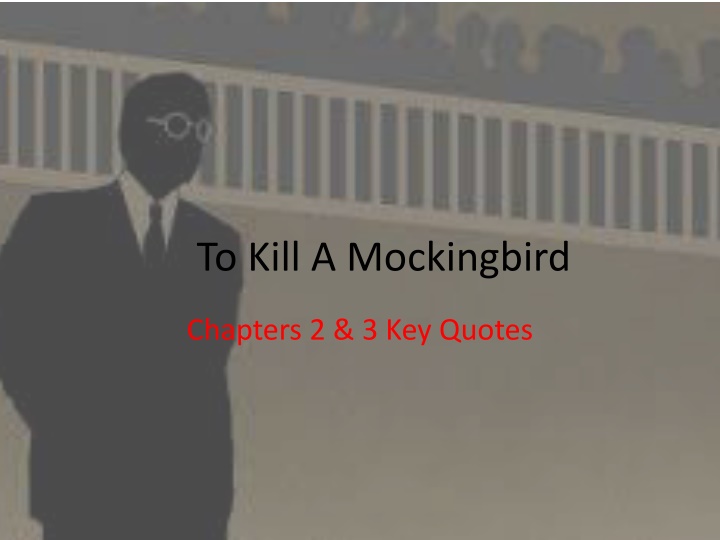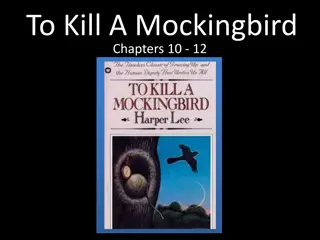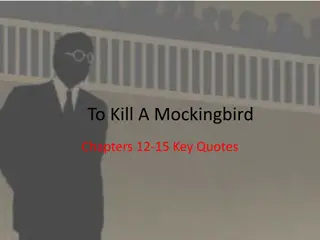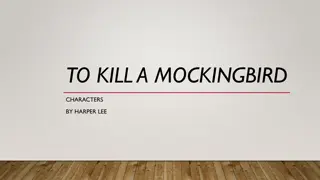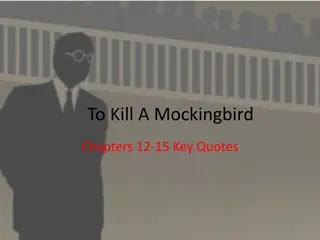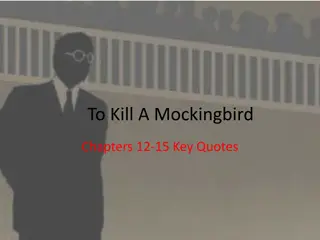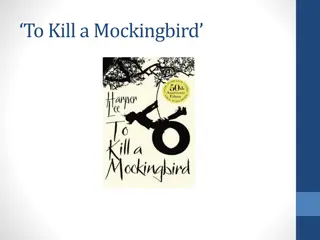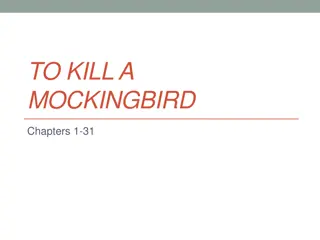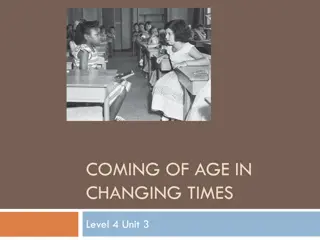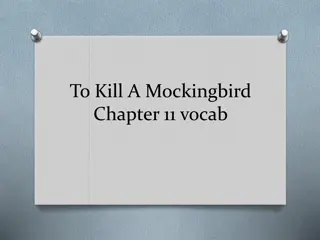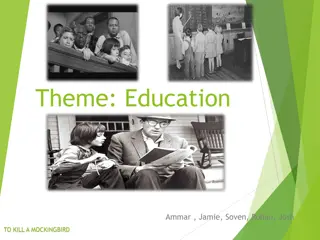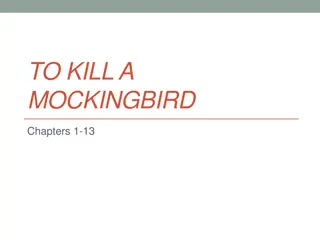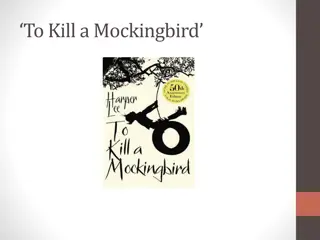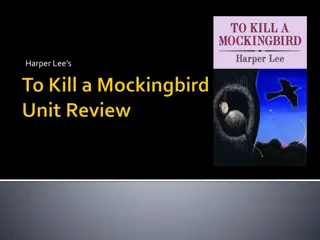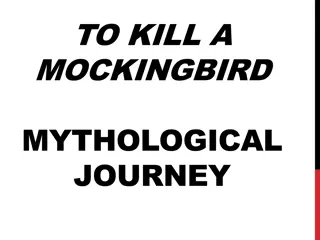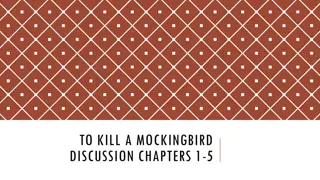Insights from Key Quotes in "To Kill a Mockingbird" Chapters 2 & 3
Explore important quotations from "To Kill a Mockingbird," including analysis of key moments from chapters 2 and 3. These quotes provide deep insight into themes of justice, prejudice, and social class as depicted in the novel through the interactions of characters like Atticus, Scout, Calpurnia, and the Ewells.
Download Presentation

Please find below an Image/Link to download the presentation.
The content on the website is provided AS IS for your information and personal use only. It may not be sold, licensed, or shared on other websites without obtaining consent from the author.If you encounter any issues during the download, it is possible that the publisher has removed the file from their server.
You are allowed to download the files provided on this website for personal or commercial use, subject to the condition that they are used lawfully. All files are the property of their respective owners.
The content on the website is provided AS IS for your information and personal use only. It may not be sold, licensed, or shared on other websites without obtaining consent from the author.
E N D
Presentation Transcript
To Kill A Mockingbird Chapters 2 & 3 Key Quotes
Important Quotations Explained CONTEXT- Atticus is talking to Scout about her argument with her teacher QUOTATION- You never really understand a person until you consider things from his point of view until you climb into his skin and walk around in it. (pg 33) EXPLANATION-this moral advice sets the course of the novel and exemplifies Lee s theme of justice and judgement. The simple wisdom of his words demonstrates the purity of Atticus spirit and judgement, and he demonstrates his ability to follow his own advice in his simple explanation. It also hints at the roots of the problems Maycomb faces
Key Quotation Analysis CONTEXT- Scout defending Walter Cunningham and explain to Miss Caroline about how things work in Maycomb QUOTATION- You re shamin him, Miss Caroline. Walter hasn t got a quarter at home to bring you, and you can t use any stovewood. (pg 24) EXPLANATION- Scout makes clear Miss Caroline s ignorance as an outsider to Maycomb ways ; Scout shows her indignation over the situation and confronts her teacher, showing her stubborn and defensive nature. Shows supportive nature towards Walter, and that she is her father s daughter-aware and outraged by the injustices and inequalities in Maycomb
Key Quotation Analysis CONTEXT- Calpurnia is scolding Scout for judging her guest, Walter QUOTATION- There s some folks who don t eat like us but you ain t called on to contradict em at the table when they don t. That boy s yo comp ny an if he wants to eat up the table cloth you let him, you hear? (pg 27) EXPLANATION- By teaching Scout some social etiquette through Calpurnia, Lee highlights the novel s theme of prejudice and its effects on the children. These words are particularly important coming from Calpurnia, and Lee makes a connection through her scolding between social class inequalities and racial inequalities, as she speaks from experience of being judged.
Key Quotation Analysis CONTEXT- Scout describes her first sighting of Burris Ewell QUOTATION- The boy stood up. He was the filthiest human I had ever seen. His neck was dark grey, the backs of his hands were rusty, and his fingernails were black deep into the quick. (pg 29) EXPLANATION- Burris appearance is used by Lee to introduce the Ewells and indicate their background and social standing in Maycomb. His unhygienic description tells us how poorly the Ewell children are cared for, and hints that they are rural folk and that the children are left to their own devices
Key Quotation Analysis CONTEXT- Burris Ewell argues with Miss Caroline (teacher) QUOTATION- Report and be damned to ye! Ain t no snot-nosed slut of a school teacher ever born c n make me do nothin ! You ain t makin me go nowhere, missus. (pg 31) EXPLANATION- Indicates Ewells distrust of authority figures and brazen flouting of rules and laws-hints at Ewell family values and foreshadows older Ewells callous and cold behaviour later in novel
Key Quotation Analysis CONTEXT- Atticus explains to Scout why she must attend school QUOTATION- sometimes it s better to bend the law a little in special cases. In your case, the law remains rigid. So to school you must go. (pg 33) EXPLANATION- Atticus refers to Ewells here, suggesting that in some cases it is easier to accommodate rather than scold, hinting that the Ewells are challenging figures. Lee emphasises Atticus position as authority figure and loyalty to the law
Key Quotation Analysis CONTEXT- Atticus explains the Ewell family to Scout QUOTATION- the Ewells had been the disgrace of Maycomb for three generations they were people, but they lived like animals. pg33-34) EXPLANATION- Ewells are presented as infamous figures in the community, but long-standing citizens who Maycomb s traditional values protect out of respect for family name. Ewells are considered outside of the law, due to their behaviour, and looked down on by rest of Maycomb- considered animals rather than part of the community
